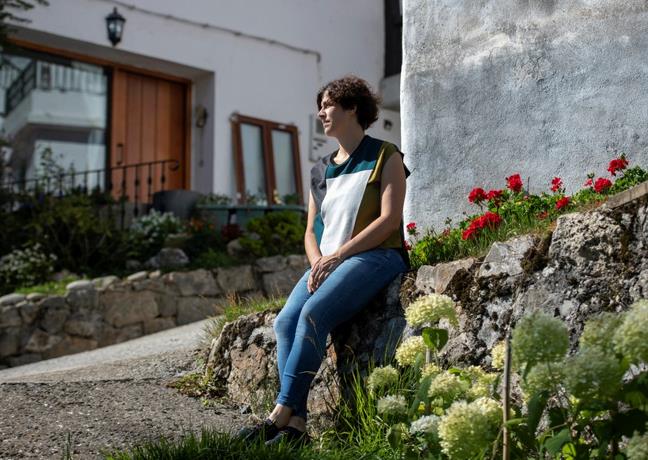For Nahia Alkorta, the ruling of a United Nations committee that determined that she had suffered obstetric violence while giving birth to her first child was a triumph after a decade demanding justice.
Diagnosed with post-traumatic stress from what happened in a hospital in northern Spain in 2012, Alkorta turned to the UN after failing in Spanish courts.
The UN Committee for the Elimination of Discrimination against Women (CEDAW) established in July that she endured unjustified interventions that constituted obstetric violence, including a caesarean section without consent, immobilization of her arms and prohibition of being accompanied by her partner.
"Since the CEDAW resolution came out, more than a hundred women have contacted me saying that they too" It has happened to them, Alkorta, a 36-year-old Basque, tells AFP.
Is something "that it is not spoken because of the pain it generates, because of the shame, because of the fact that (thinking that) it should be like this"it states.
The CEDAW ruling, for whom obstetric violence, a "widespread and systematic phenomenon"is that "suffered by women during delivery care in health centers"asked Spain to compensate Alkorta for physical and psychological damage and ensure that women’s reproductive rights are respected in the health and justice systems.
This decision came at a time when activists in Europe seek to make obstetric violence visible, often unrecognized.
Even some medical associations question the possibility of talking about obstetric violence.
"Women are telling another story"Alkorta replies.
"fully sold"
Nightmares, insomnia, traumatic memories… The consequences for Alkorta were many after the ordeal that began when his waters broke at week 38.
At the hospital in San Sebastián, in the Basque Country (north), she was given oxytocin to induce labor without medical explanation, despite the fact that she was having contractions. According to her, her staff began to get aggressive at her questions.
The next day, the gynecologists decided to perform a caesarean section, without consulting her and despite the fact that a midwife assured her that the labor was progressing.
"I told them to explain slowly, because I was very tired, and the explanation was that they would take the child out and that it was 40 minutes and that was it."says Alkorta, now a mother of three.
With her arms tied, a protocol in some hospitals during caesarean sections, and without her husband, prevented from accompanying her, she felt that she was "fully sold".
It was not until hours later that Alkorta was able to hug her son, totally healthy.
In Europe, statistics on obstetric violence are scarce, but according to activists, women routinely suffer from lack of information, rude or demeaning behavior by medical personnel and, in some cases, dangerous practices.
A recent initiative in Serbia to "Stop obstetric violence" it collected 70,000 signatures in five days. One of his demands was that the state pay for a companion in the delivery room, since currently some public hospitals charge for allowing it.
According to the petition, many women in Serbia have suffered insults, humiliation, negligence and medical malpractice.
Countries such as Spain and Italy have created observatories for obstetric violence, but according to activists, few cases reach the courts.
"Many mothers who have suffered traumatic births contact us, but almost none end up filing a lawsuit"says Nina Gelkova of the Bulgarian organization Rodilnitza.
consent and respect
In its allegations before CEDAW, Spain, which supported the justice of the country that acquitted the hospital, assured that there are no deliveries "to the letter".
"I was not looking for an a la carte delivery, not at all, I was looking for humane treatment and I did not receive it"Alkorta replies.
"I am not against interventions that are justified, they save many lives, but the limit always has to be consent and respect"underlines.
Francisca Fernández Guillén, a lawyer from Alkorta, explains that medical personnel or family members can minimize traumatic experiences during childbirth.
"Sometimes, the couple or the family advise the woman to forget what happened"Fernandez says.
But the situation seems to be changing.
The vice president of the Federation of Midwives Associations of Spain (FAME), Daniel Morillas, indicated that in his 16 years of work as a birth assistant he has witnessed an awareness of the rights of mothers and their active role in give birth, although she thinks there is still a long way to go.
"The first thing we have to do to fight against obstetric violence is to recognize its existence", he pointed. Fortunately, many doctors and midwives "they have realized that it does exist and are trying to change"he adds.
